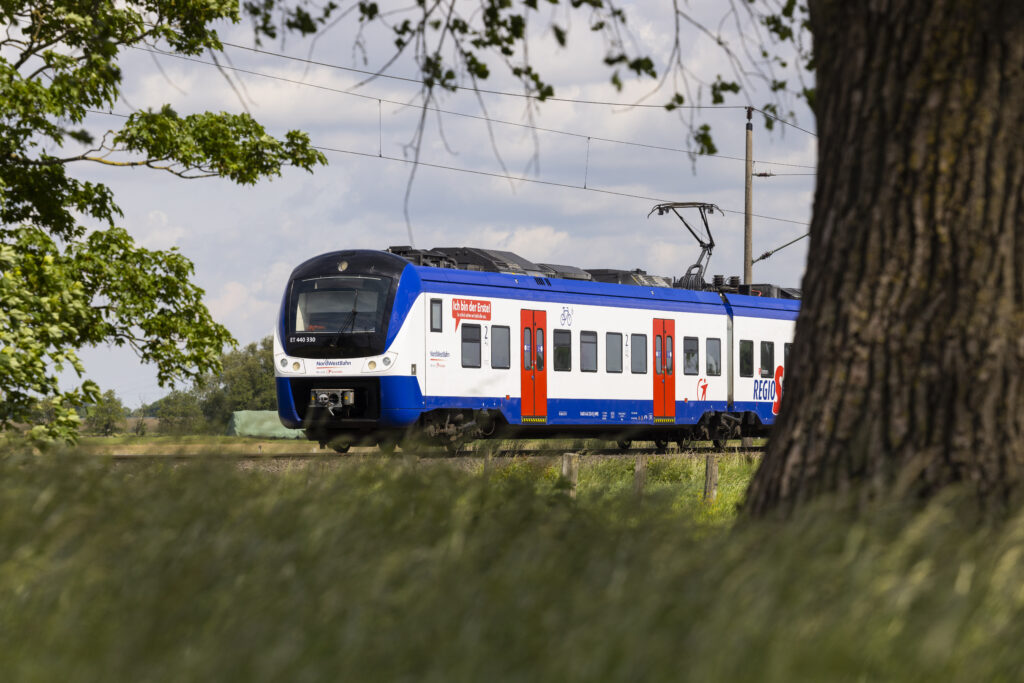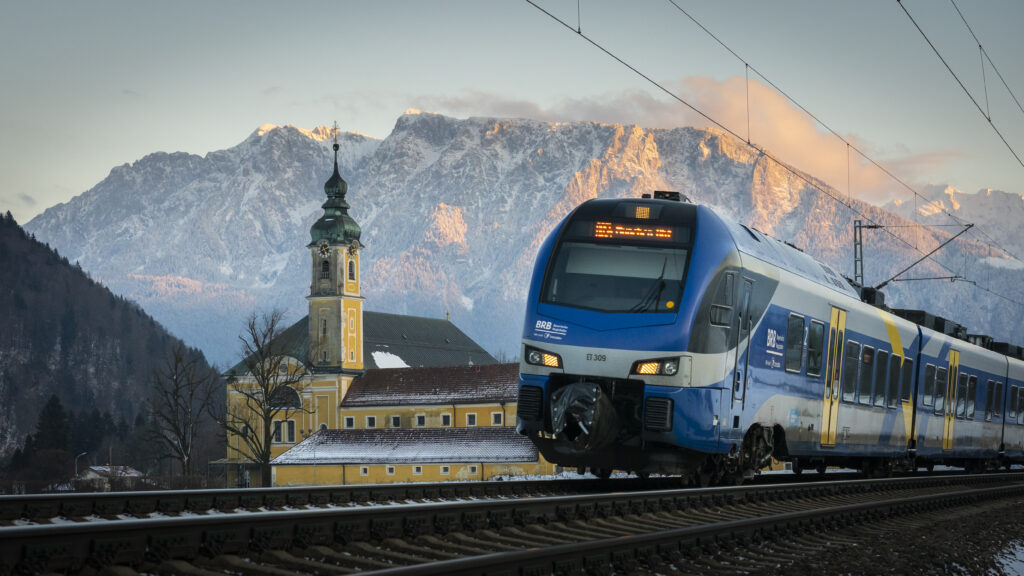Two subsidiaries of the Transdev Group, Germany's largest private mobility provider, have now been awarded contracts in tenders for the operation of local rail passenger transport networks (SPNV) on which Transdev trains were already in service. Both NordWestBahn and Bayerische Regiobahn were able to defend their existing business and secure the future operation of the Weser-Ems network in western Lower Saxony and the Rosenheim E-Netz in southern Bavaria.
NordWestBahn will operate trains on the Weser-Ems network between Osnabrück, Bremen, Wilhelmshaven, and Esens for another nine years starting with the timetable change in December 2026, after the company was awarded the contract by the Lower Saxony Regional Transport Authority. NordWestBahn has been operating the network since November 5, 2000, and thus for almost 25 years.
The new transport contract, covering around 4.3 million train kilometers per year, will take effect in December 2026 and run until 2035. An extension until 2037 is possible. Service expansions on the network will only be possible after the infrastructure has been modernized. The Weser-Ems network comprises the three lines RE 18 Osnabrück – Wilhelmshaven, RB 58 Osnabrück – Bremen, and RB 59 Wilhelmshaven – Esens. The Alstom LINT vehicles from the Lower Saxony pool will continue to be used and will be replaced by newer vehicles during the course of the contract.

Photo: Holger Jacoby.
In southern Germany, Bayerische Regiobahn (BRB) has won the latest tender for the Rosenheimer Kreuz electric network and will thus be able to continue operating the routes from Munich to the Austrian border at Salzburg and Kufstein until at least 2043. This was announced by the Bavarian Railway Company (BEG), which plans, finances, and controls regional and suburban rail transport in Bavaria on behalf of the Bavarian Ministry of Transport.
The network, which BRB has been operating since December 2013, comprises the three lines RE 5 Munich – Rosenheim – Salzburg, RB 54 Munich – Rosenheim – Kufstein and RB 58 Munich – Holzkirchen – Rosenheim. The new transport contract will start when the timetable changes in December 2029. The contract will run for at least another 14 years until December 2043. The 35 Stadler FLIRT 3 electric railcars will continue to be used and are to be redesigned.
BRB currently transports around 17 million passengers per year on the Rosenheim E-Netz, which covers 260 kilometers. With around 4.9 million train kilometers per year, it is the largest of the five networks operated by BRB in Bavaria. BRB currently employs around 850 people in Bavaria.

Photos: Dietmar Denger

